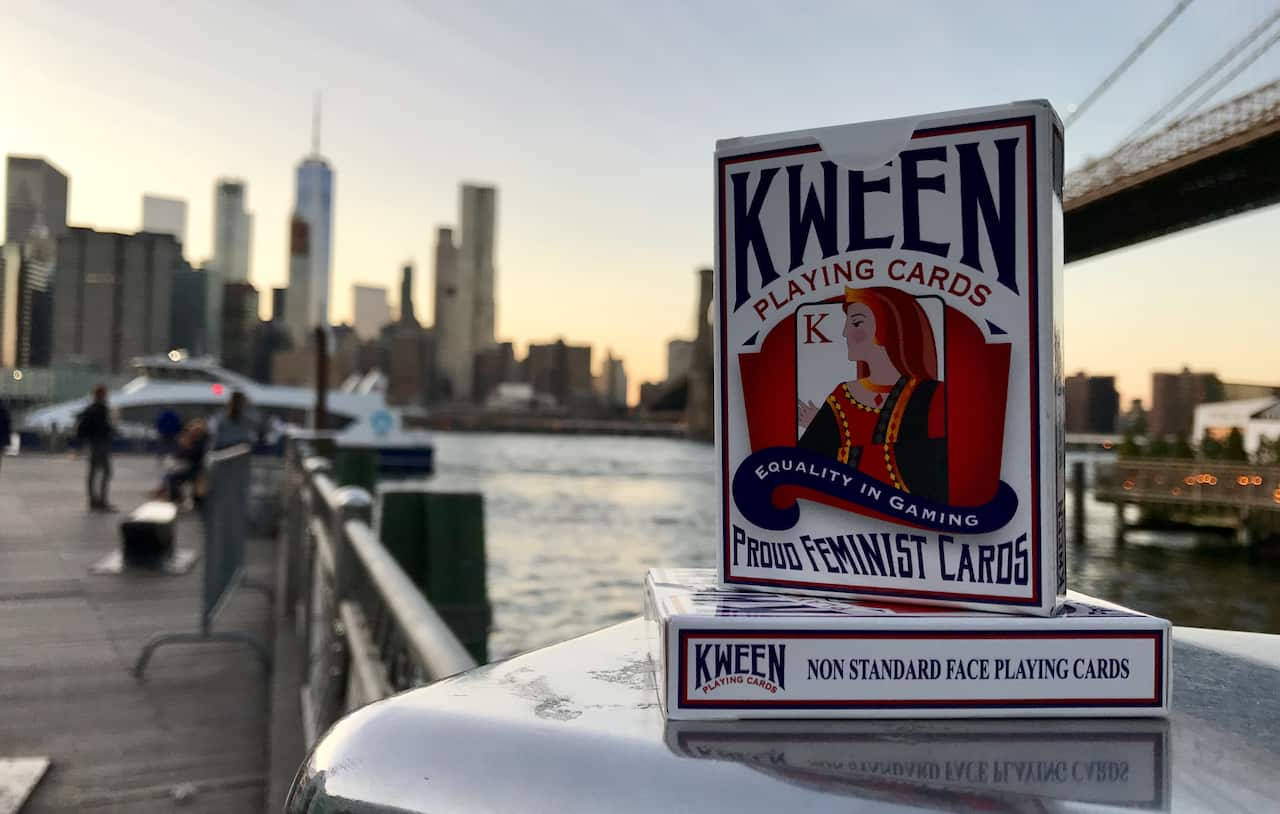Having moved to the US in March 2016, Gilray experienced the election of Donald Trump and the Women’s March in Washington as protesters advocated for women’s and LGBTQ rights.
Working as an engineer, the 26 year-old came up with the concept where the Queen becomes ‘Kween’, with the female ‘K’ card now sitting on top in the rankings in a standard deck. Gilray hopes the change helps to start a conversation about equality over the table, and spoke with SBS about his motivation behind the design.
“2016 was a hell of a year to be living in the USA,“ Gilray told SBS.
“You get bombarded by the election campaign for 10 months leading up to the election, which for me, became an election about gender equality as much as anything else - I saw a backlash against Donald Trump with Women’s Marches across the US and around the globe, and realised how far there is to go when it comes the problems that women encounter on a daily basis.”

As a keen card-player, the idea for making the switch in the gender roles came about naturally.
“Playing cards have been around for over one thousand years in some form or another and they haven’t changed much in the past few centuries,” he continued.
“The idea that the King always beats the Queen is just one example of systematic sexism that I felt could be changed pretty easily.”
Gilray was quick to get his idea rolling and has already produced a prototype with the help of Brooklyn-based graphic designer, Emily Kemp.
“I realised my high-school art classes could only get me so far, so I partnered with Emily here who did an amazing job. The reception we’ve had so far has been very encouraging," Gilray said.
“I wanted the cards to really stand out from your ordinary deck and, after finding the design for the front of the cards, I went to work swapping the K’s with Q’s."
The pair were excited when their early designs were met with a positive reaction, encouraging Gilray to set up a Kickstarter Campaign, something he hopes will help him to reach his ultimate goal of exporting the cards worldwide and reach the greatest audience possible.
“I think the good thing about Kickstarter is that it is a platform where we can spread awareness about this issue - we’re looking for backers to not only get behind the product but hope that these cards can continue to open a dialogue about the issue of women’s rights on a global scale.

If Kween Cards is able to grow beyond the Kickstarter campaign, Gilray wants to partner with women’s rights advocacy groups and help by contributing profits to support women in need.
“I want to be able to give people in any country the opportunity to choose a different approach, I mean, women’s rights are human rights. Later on down the track we’ll adapt the cards for European Countries who have different names for the traditional court cards and I’m excited to create a deck of cards that promotes LGBTQ equality.
“In the end, what has really driven me is that one day, in the future, I’m going to sit down with my kids and teach them how to play card games and I don’t want that moment to reinforce the idea that men are worth more than women.”

Turning the card
This isn't the first time that playing cards have been used to celebrate identity, with artist Felix Frederic D'Eon placing a twist on Loteria cards, a popular game in Mexico.
Similar to bingo, the game is played with 54 cards featuring images of animals, objects and people with D'Eon introducing three new cards - "La Luna" which features two women embracing, "La Rosa" depicting a naked man with a rose clenched between his buttocks, and "La Muxe" which embraces Mexico's third recognised gender who are born as men but who dress and behave as women.
The Mexican artist created the cards with the intention of promoting "inclusivity, love, sexual openness, and belonging".
Tyson Mowarin, made news last year with the creation of card game 'Who Your Mob?', based on increasing awareness of Australian Indigenous groups in the West Pilbara region of Western Australia and the cultural governance system that exists in the region.

